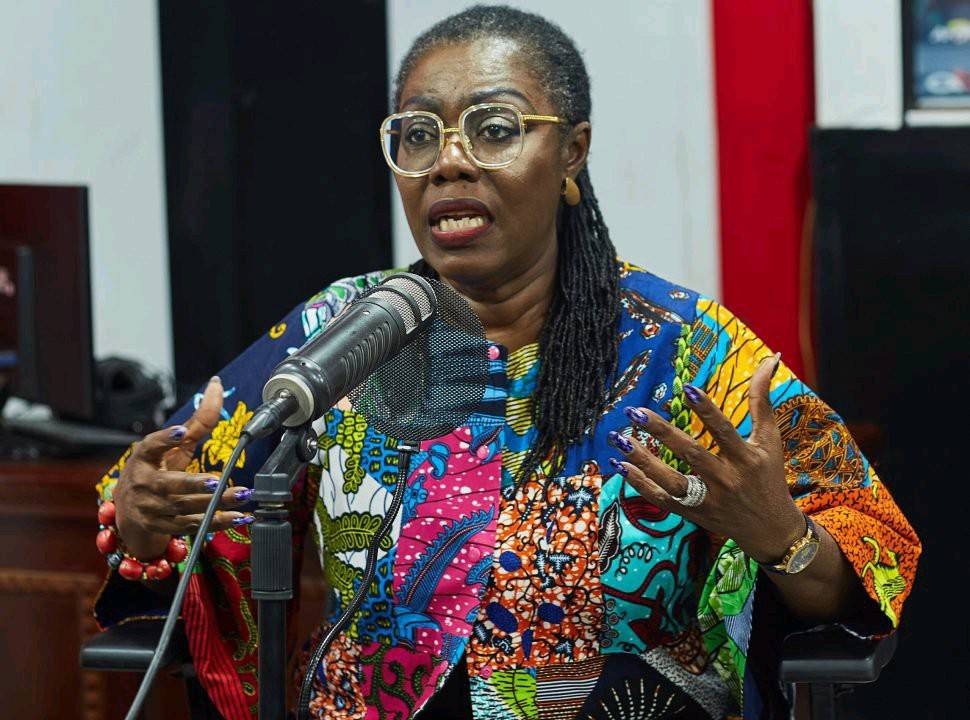Ursula Owusu-Ekuful, a well-known Member of Parliament for Ablekuma West, has raised important concerns about the future of Ghana’s Parliament when the new session begins in January 2025. She believes that the country may face difficulties in the next Parliament due to the departure of many experienced MPs, which could make the legislative process more challenging.
During an exclusive interview on the Angel Morning Show on December 2, 2024, Owusu-Ekuful shared her worries about the changes happening in the political landscape. She pointed out that a significant number of long-serving MPs, who have years of experience and knowledge in handling parliamentary work, will no longer be in the House. This, according to her, could create a gap in expertise and leadership that is necessary for the proper functioning of the Parliament.
The 9th Parliament of Ghana, which will soon come to an end, has seen many seasoned politicians who have been a part of key decisions, debates, and laws. These MPs have developed a deep understanding of parliamentary procedures, which is crucial in making informed decisions. Owusu-Ekuful explained that the next Parliament will miss the presence of these experienced individuals, as many of them are either not contesting in the 2024 elections or have already lost their bids to win primaries within their political parties.
“I’m frightened about the next Parliament because many of our experienced MPs are leaving the House,†she said during the interview. “It is either they are not contesting again, or they failed to win their respective primaries,†she added. Owusu-Ekuful’s statement highlights the reality that, as the older MPs step down or make way for fresh faces, there will be fewer people in Parliament with the knowledge of how things work behind the scenes. This could lead to difficulties in handling important legislative tasks and decision-making in the future.
One of the key points Owusu-Ekuful made during the interview was the need for Parliament to review and restructure its practices to make them more effective. She acknowledged that there are several areas where parliamentary processes could be improved, and it is important to have people with experience to guide these changes. Experienced MPs, according to her, have the wisdom and understanding to help make these improvements. However, with so many experienced members leaving, Owusu-Ekuful worries that this critical knowledge may be lost, making it harder for the next Parliament to function smoothly.
“It’s true that there are some lapses in our parliamentary practices that need to be addressed, and we will need the expertise of these experienced MPs on board,†she said. This statement reflects her belief that change is necessary, but without the help of skilled MPs, those changes may not be as effective or easy to implement.
Despite her concerns, Owusu-Ekuful was careful to clarify that her comments were not meant to undermine or belittle the capabilities of new MPs who will join the Parliament. She made it clear that she was not suggesting that the next generation of MPs would be incapable, but rather that the absence of experienced MPs would make it harder for the Parliament to function as efficiently as it has in the past. Owusu-Ekuful emphasized that being a new MP in Parliament can be overwhelming. “As a newly elected MP, you would be confused because not every business in the House is about the work itself. The actual and hard work is done behind the scenes,†she explained.
Her words suggest that the role of an MP is not just about speaking in the House or making public appearances, but it also involves a lot of behind-the-scenes work, such as research, consultation, and preparation. This is where experienced MPs play an important role in guiding and mentoring new members, helping them understand the complexities of parliamentary work. Without such guidance, it might be more difficult for newcomers to adjust to the responsibilities they face.
Owusu-Ekuful also pointed out that the challenges of the next Parliament go beyond just the loss of experienced MPs. She hinted that there may be broader issues with the way Parliament functions that will need to be addressed in the coming years. The need for reforms and improvements in parliamentary practices is something that the country’s leaders should take seriously in order to ensure that the next Parliament can operate effectively and deliver the services that the people expect.
In conclusion, Owusu-Ekuful’s concerns highlight the importance of experience and knowledge in the political world. As Ghana prepares for the next Parliament, it is clear that there will be challenges ahead, especially with the departure of many seasoned MPs. While there will undoubtedly be new faces and fresh perspectives, the question remains whether the next Parliament will be able to maintain the high standards set by its predecessors. Only time will tell if the changes in Parliament will be positive or if they will create more difficulties in the legislative process.




No comments yet
Be the first to share your thoughts!